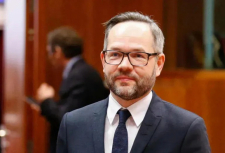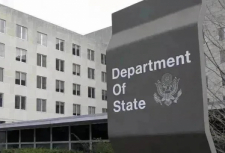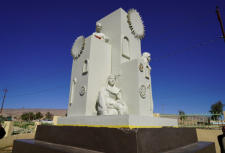How does the opposition see the future of the Georgian judicial system

According to a survey conducted by the French company IPSOS France commissioned by the Ministry of justice of Georgia, most Georgian citizens (54%) report unequal treatment in the courts. The main reasons for unequal treatment, citizens called political affiliation, social status, as well as bribery.
NGOs working on justice issues point to the existence of clan management in the judicial system. They also note that a group of influential judges called the "Murusidze-Chinchaladze clan", which controlled the judicial system during the rule of the "United national movement", also made a deal with the current government of the "Georgian dream" to continue the reorganization of the judicial system in favor of the ruling party.
Since coming to power, Georgian dream has carried out four waves of justice reform.
"Despite ongoing judicial reform, Executive and legislative interference in the judicial system, as well as corruption and lack of transparency and professionalism, remain serious challenges," Freedom House said in a statement.
The plan of the opposition to reform judicial reform
The opposition's plan to reform the judicial system consists of five main points. It specifies innovations such as the introduction of the institution of trial by jury, the principle of selectivity of judges, the abolition of the Supreme Council of justice, the appointment of foreign judges and the recognition of legal precedents of the decision of the us Supreme court.
Point one-Trial by jury
By the end of the year after the start of the reform, introduce the institution of a jury trial for serious and especially serious crimes; over the next four years – for all crimes involving imprisonment.
Point two - the principle of selectivity of judges
By the end of 2021, introduce the principle of selectivity of judges in the first instance, which considers most cases; in criminal cases, the accused together with the juror, and in civil and administrative cases, the plaintiff will have the opportunity to choose who will consider the case – an appointed or directly elected judge.
The third thing is to Personnel reform
Terminate the powers of the current composition of the Supreme Council of justice by amending the Constitution, merge the Supreme and constitutional courts; abolish all acts on indefinite appointment of judges adopted since 2017 by constitutional amendment.
Point four-foreign Judges
In the Supreme and appellate instances, appoint long-term judges from the United States and great Britain, who must form a majority in all possible panels.
Point five-Case law
Recognize as legal precedents the decisions of the us Supreme court in [civil or administrative] disputes related to freedom of speech, as well as in lawsuits between the state and a business or citizen.
Evaluation of NGOs
It should be noted that the opposition's vision is not shared by non-governmental organizations working in the field of justice. NGOs regarded it as "maximalist".
The Association of young lawyers of Georgia believes that the main problem of the judicial system today is the Supreme Council of justice.
The Supreme Council of justice of Georgia, which is an independent body established to administer the judicial system, consists of 15 members elected for a four-year term. 8 of them are elected by the self-governing body of judges of the General courts of Georgia. One of the members of the Council is appointed by the President of Georgia based on a competition.
The Supreme Council of justice is the coordinating body of the judicial system that promotes high-quality and effective justice. The Council is responsible for appointing judges of the first two instances and selecting candidates for judges of the Supreme court, as well as conducting qualification examinations.
Sputnik-georgia.ru
Tags:
How does the opposition see the future of the Georgian judicial system

According to a survey conducted by the French company IPSOS France commissioned by the Ministry of justice of Georgia, most Georgian citizens (54%) report unequal treatment in the courts. The main reasons for unequal treatment, citizens called political affiliation, social status, as well as bribery.
NGOs working on justice issues point to the existence of clan management in the judicial system. They also note that a group of influential judges called the "Murusidze-Chinchaladze clan", which controlled the judicial system during the rule of the "United national movement", also made a deal with the current government of the "Georgian dream" to continue the reorganization of the judicial system in favor of the ruling party.
Since coming to power, Georgian dream has carried out four waves of justice reform.
"Despite ongoing judicial reform, Executive and legislative interference in the judicial system, as well as corruption and lack of transparency and professionalism, remain serious challenges," Freedom House said in a statement.
The plan of the opposition to reform judicial reform
The opposition's plan to reform the judicial system consists of five main points. It specifies innovations such as the introduction of the institution of trial by jury, the principle of selectivity of judges, the abolition of the Supreme Council of justice, the appointment of foreign judges and the recognition of legal precedents of the decision of the us Supreme court.
Point one-Trial by jury
By the end of the year after the start of the reform, introduce the institution of a jury trial for serious and especially serious crimes; over the next four years – for all crimes involving imprisonment.
Point two - the principle of selectivity of judges
By the end of 2021, introduce the principle of selectivity of judges in the first instance, which considers most cases; in criminal cases, the accused together with the juror, and in civil and administrative cases, the plaintiff will have the opportunity to choose who will consider the case – an appointed or directly elected judge.
The third thing is to Personnel reform
Terminate the powers of the current composition of the Supreme Council of justice by amending the Constitution, merge the Supreme and constitutional courts; abolish all acts on indefinite appointment of judges adopted since 2017 by constitutional amendment.
Point four-foreign Judges
In the Supreme and appellate instances, appoint long-term judges from the United States and great Britain, who must form a majority in all possible panels.
Point five-Case law
Recognize as legal precedents the decisions of the us Supreme court in [civil or administrative] disputes related to freedom of speech, as well as in lawsuits between the state and a business or citizen.
Evaluation of NGOs
It should be noted that the opposition's vision is not shared by non-governmental organizations working in the field of justice. NGOs regarded it as "maximalist".
The Association of young lawyers of Georgia believes that the main problem of the judicial system today is the Supreme Council of justice.
The Supreme Council of justice of Georgia, which is an independent body established to administer the judicial system, consists of 15 members elected for a four-year term. 8 of them are elected by the self-governing body of judges of the General courts of Georgia. One of the members of the Council is appointed by the President of Georgia based on a competition.
The Supreme Council of justice is the coordinating body of the judicial system that promotes high-quality and effective justice. The Council is responsible for appointing judges of the first two instances and selecting candidates for judges of the Supreme court, as well as conducting qualification examinations.
Sputnik-georgia.ru
Tags:


























